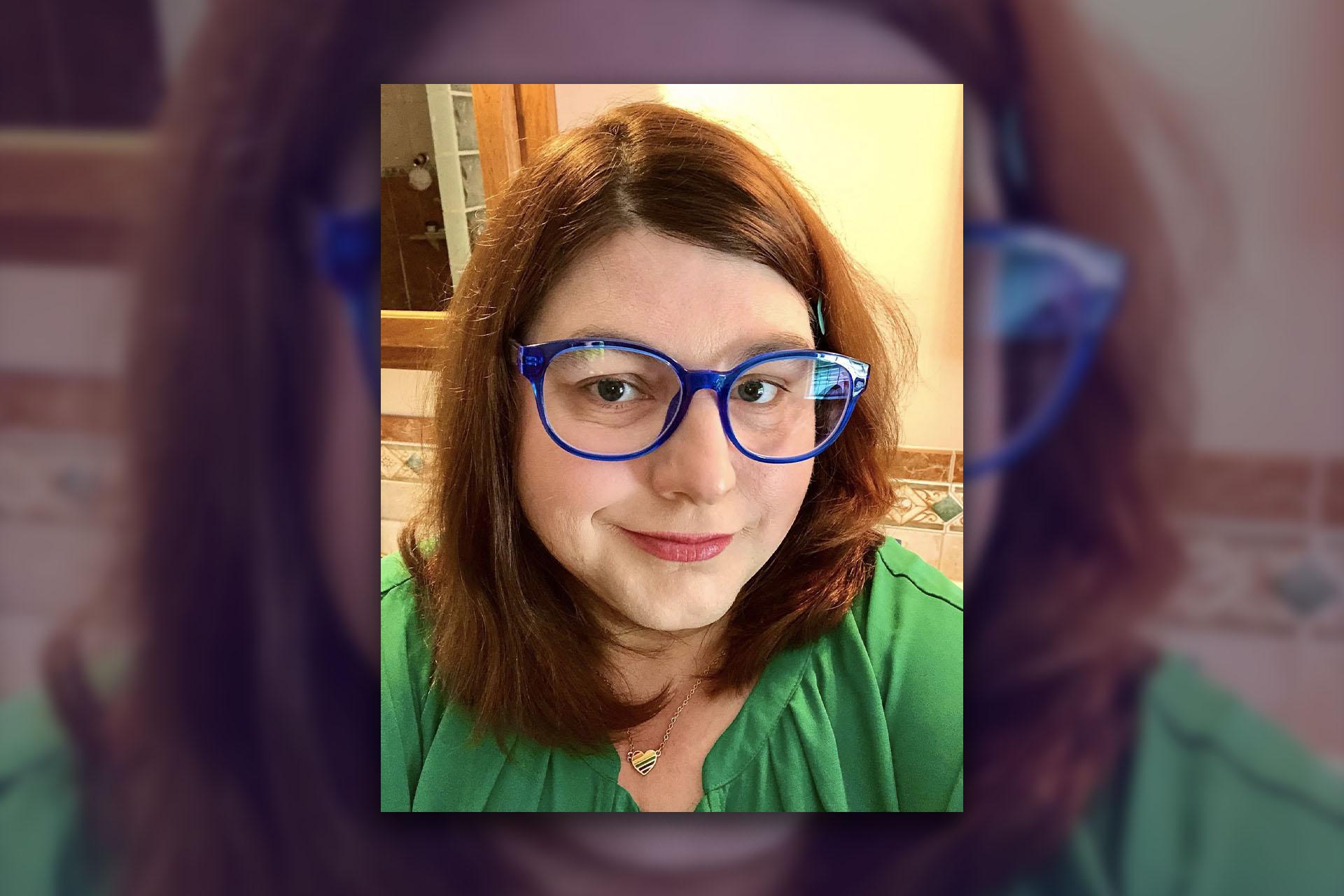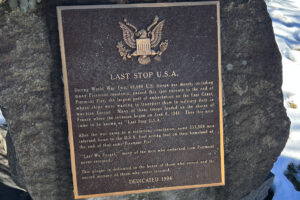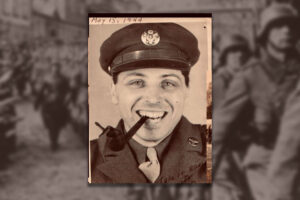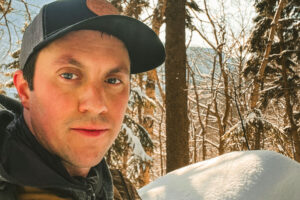Grass Butterflies
Grappling With the Legacy of my Father’s Addiction.
My father is dying*. Not dramatically. Or quickly. But he is definitely dying in dribs and drabs. Now 74, the grizzly, unkempt, Irish-American former Sergeant in the New Jersey National Guard that is my Dad, is emaciated from anorexia. He also has skin cancer, COPD, and Emphysema from his lifelong habit of attempting to outdo the Marlboro Man in cigarette consumption. Because of this, he is now never without an oxygen tank, and rarely ventures outside of his dilapidated trailer. He sits on his little sofa bed in the living room that houses his defunct television, surrounded by piles of junk, unread mail, furniture that has collected cobwebs over lack of use, and a dim reading light.
He reads. He listens to the radio and to music on his ancient CD player. He talks on his landline phone to his beloved niece, and to his friends from Meals On Wheels, who have been a Godsend in the last 12 years bringing food to him. After my grandmother, one of the few people he was still close to, died, he simply stopped eating. It was how he reacted to his grief. He has no computer, no cell phone, no internet; all of which I have offered to get him, all of which he has refused to accept. He has vanquished all signs of the modern world from his realm. Nearly his siblings have passed away. He and my mother split when I was little, and he never remarried. He is bitter and sad at the trickle of time he has left, and at the state in which he is left to live it. But to his credit, despite the clear evidence that time will have its way with him in the near future (as if it hasn’t already), and with what I imagine is tremendous temptation: he has not had a drop of alcohol since I was 5 years old.
When I was an undergrad, my Dad “came out” to me about having been an alcoholic. We sat in my small, messy apartment in upstate New York during my sophomore year. He started pacing back and forth, getting more and more anxious. I knew he was warming up for a monologue. My Dad is the King of Monologuers. I suspect it comes from having been a middle child in a large, dysfunctional family. He had to constantly vie for attention, so the way to do that was to command it by holding everyone hostage while he talked about something either everyone already knew, or about some injustice that was done to him, usually with his version being utterly divorced from reality. In this case, he was working up to telling me his big secret: “I know I’m your father. And I know you probably didn’t know this about me, but when I was younger, I was a drunk.” Big pause for dramatic effect, and presumably to see the look of shock on my face. That look, of course, never came. Not only had I known all my life he had been an alcoholic, but I had also seen him drunk.
*****
Grandfather B. and my Dad were in my grandmother’s backyard. I was 4. She was watching me, but when I ran out to the backyard, I saw my grandfather and my Dad galloping clumsily while reaching up and clapping their hands into the air over and over. They kept laughing and falling over. Butterflies! We’re chasing butterflies! They both shouted this to no one in particular, giggling. They ran into each other, stumbling as if their feet had suddenly transformed into wet noodles. Their faces wore the kind of smiles you see in circuses. Their laughter came out in loud, strangled, hysterical brays. I wasn’t sure exactly what was wrong with them, but something in my tiny brain recognized this was a warped display. My Father giddily handed me his crushed-up hat. Open it up! I caught a butterfly just for you! Afraid to look, I slowly opened up the hat to see if there was indeed some poor squashed butterfly awaiting my 4-year-old tears. To my odd relief, there was merely grass, dirt, and possibly some tobacco paper in the hat. I stood frozen, not knowing what to do or say. Confusion didn’t quite cover the feelings enveloping me. Can a 4-year-old actually be unnerved? Then my grandmother came out, scooped me up, and screamed at them both to get lost.
*****
I was 3 1/2. The car felt safe. My Mother frantically buckling me in, locking the doors, and starting the engine. But we couldn’t go; Dad was standing directly in front of the car, banging on the hood, and sloppily grinning. He seemed to be gasping for air, as if he had been running. Chasing. Mom started honking on the horn and yelling at him. I was terrified, having no clue what was going on. I tried to sink into my seat. As she revved the engine, my Dad slid down the side of the car from the hood towards the passenger door. Before I could blink, his hands were through the window, which had been partially open, grabbing the steering wheel. My Mother hit the gas, and we lurched forward. He gurgled and tried to keep up with the car, as she tried to roll the window up. Finally, he let go, thudding onto the street calling her name, and we got the hell out of there. Many years later, it was revealed to me by my Mom that I had visually blocked out what had really happened. My Dad hadn’t been reaching for the steering wheel when he put his arms through the driver’s side window; he had been trying to strangle my Mom.
*****
Once my Dad got sober, which was about a year-and half after my Mother finally got the courage to leave him for good, he stayed sober for the rest of his life. When I was little, it was fuzzy to me exactly why my Dad acted so bizarrely. I honestly don’t remember all of it, which I consider a blessing. There are other, far worse stories about how he behaved and how it affected my Mother and I, as well as his family; but they are not my stories to tell. My Mother simply made sure I was aware of the history so that I understood why they were no longer together. It also helped prepare me for when I came of age and was faced with making drinking choices of my own in college.
Alcoholism is rampant throughout my Dad’s family. His dad was a raging, nasty, abusive drunk. Two of his brothers were depressive drunks. My Dad started drinking at the age of 11. His entire family was basically a low-rent version of Long Day’s Journey Into Night. And I have inherited the addictive personality he has. I drank too much in college because like him, I felt lesser than all of the other people around me, yet desperately wanted them to like me.
Gary Oldman once said he heard the description of alcoholics as “egomaniacs with low self-esteem”. That might not be true for everyone of course, but I have found that it is certainly true for Dad, and for me as well. We both have always been desperate for the approval of others, but harbored a deep self-hatred that was often temporarily quelled by getting drunk. It was pure luck I was able to stop early on when friends intervened, and I hadn’t gone quite as far down the rabbit-hole as he did. It could have gone sideways fast had I not had such a clear awareness of the consequences. I don’t know if I stopped because I knew what could happen, or if I started in the first place because it was modeled for me at such an early age. All I know is, the predisposition is there. Would I have started at all had I never known? Would I have stopped had I not? Who knows? There is no point in trying to figure out a puzzle with pieces I have no access to. That is after all, what the past consists of. This isn’t just my story, and I don’t have all the parts to put it together. No one does.
Sitting at the table in my college-age apartment, my Dad is stunned that I already knew he had been a drunk. “How did you know!?” He asks me, almost hurt that I am not the gasping audience he has hoped for. “Dad, I was there. I SAW you. And Mom was pretty honest when I asked why you guys split up.” He sat there, blinking at me, as if I had just stated matter-of-factly that fairies exist. “I was a fall-down-in-the-gutter drunk. I didn’t do it for any other reason than because I liked it. And I didn’t stop until I realized how it was hurting you. You were the reason I stopped. I did it for YOU.” Even though I don’t entirely believe this, I still tear up because more than anything, I know he WANTS it to be true. His half-lidded take on reality has always been a coping method, not necessarily outright lying. Who wants to remember things they said and did that were horrible? Who doesn’t want to be the hero in their own story? Who doesn’t want to be the father they should have been in the first place?
Truthfully, he has always loved me and been supportive. Never avoided visiting me, always tried to be a part of my big milestones. Because of this, he refused to believe that I remembered any of his drunkenness; refused to acknowledge the reality that he wasn’t just a happy, romantic, stumbly drunk; but a nasty, abusive drunk to my Mother. And we both knew the real reason he stopped was because if he hadn’t, he would have died. My Mother leaving him and taking me with her cemented that reality firmly for him. There was no one to pick him up anymore, or for him to project his anger and self-loathing onto. He was left alone again, chained to his master, his addiction.
Even though I know my Father truly loved me, and in a strange way, my Mother too; it took him having no choice but to get up and get his ass to AA or be found lying face-down dead in the streets near the local bar to get him to stop. Having a daughter he loved that he suddenly couldn’t see anymore probably helped motivate him once he was stuck, but no one can make you stop drinking (or to stop any other kind of addiction). You have to do it yourself. I had to. He had to. His father had to after my grandmother left him. Addiction isn’t just brutal because of how it ravages your ability to function. It is brutal because it ravages everyone around you as well. And that shit sticks. I’m not all that different. I drank too much. Smoked cigarettes in high school and college. I’m addicted to sweets. My feelings about how much his addictions hurt himself and his family aren’t merely judgement; it’s heartbreak and the painful recognition of seeing those qualities in myself.
This is what I think about when I visit my Dad, as he clings to the last vestiges of his life. He has not had an easy road, even sober. The ravages of his drinking addiction lay dormant once he cleaned up, but they came out in unsavory ways. While sober, he was always funny, loving, witty, and kind-hearted. But the older he got, the harder it was for him to cope with disappointment, anger, and rejection. He had been so used to drinking to mask his pain and his self-hatred, when he didn’t have that to lean on anymore, it had no escape hatch and he would lash out verbally. He was never able to settle down with another woman, not for very long. He had a good steady job for over two decades, and because I am his only child, he didn’t have a lot of expenses. But he made poor financial choices over the years because the other addiction he never quite shook was horse racing. Gambling, smoking, and then when my grandmother passed, refusing to eat. He was never overweight, but after she died, he withered to a mere 110 lbs on a good day. Anorexia via grief.
Dad has turned himself into a Clint Eastwood-esque hermit. What if the reasons for his current shambolic state of living are because he was never able to shake the scars that were passed down to him from his family, all of which stemmed from addiction? Generational addiction. Perhaps the reason I was able to fend off my darker angels of drinking sooner than him was because I had a more solid support foundation at a much younger age. That being said; my Mother did support his sobriety, even after leaving him. She even came with him to his first few AA meetings and celebrated his first year of full sobriety. Though they haven’t communicated since I turned 18, she still gives him credit for that. It took a metric ton of courage; and in spite of his incredible bullishness in refusing help, I love him very much. He’s not a bad person; he’s just a deeply damaged soul.
Watching him transform into nothing more than a whisper, it’s hard not to imagine what his life could have been had his addictions never taken over. Or at least, what an improvement his life could have had had he been able to get help much sooner, been willing to try. What would things have looked like if he had better coping tools to live a happier life once he got clean?
The strength, the courage, the incredible bravery it took not just to stay sober, but to not give into the temptation to relapse in the face of death is astounding to me. If only he had seen that strength within himself for all the other parts of his life. That’s what addiction truly does: it robs you of your sense of self, and it turns butterflies into grass.
*The Author’s father passed away in 2020. This essay was previously self-published on Medium.
Shannon O’Neill is currently Administrative Assistant and former NYC English Teacher. She lives, writes, and enjoys the 518 life with her family in Troy, NY. A Belle of the Bard and lover of all things ELA since her childhood in Southern Vermont, Ms. O’Neill encourages everyone to find their voice among the keys and exhale in as many words per minute as suits you. She also encourages fighting the patriarchy and loving all creatures great and small.





